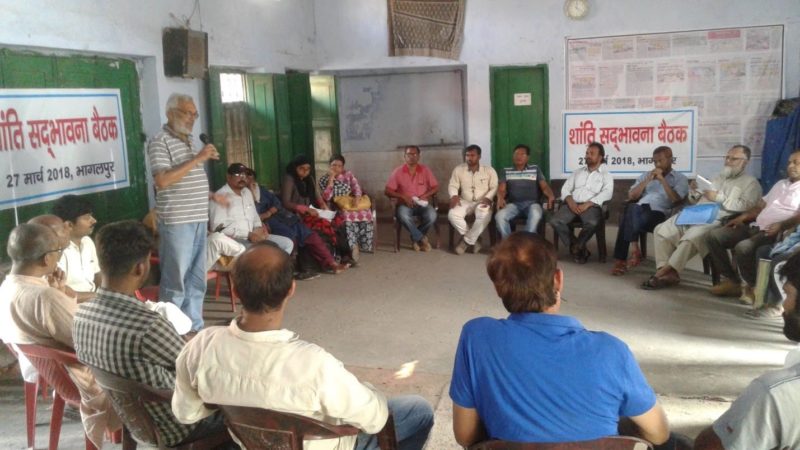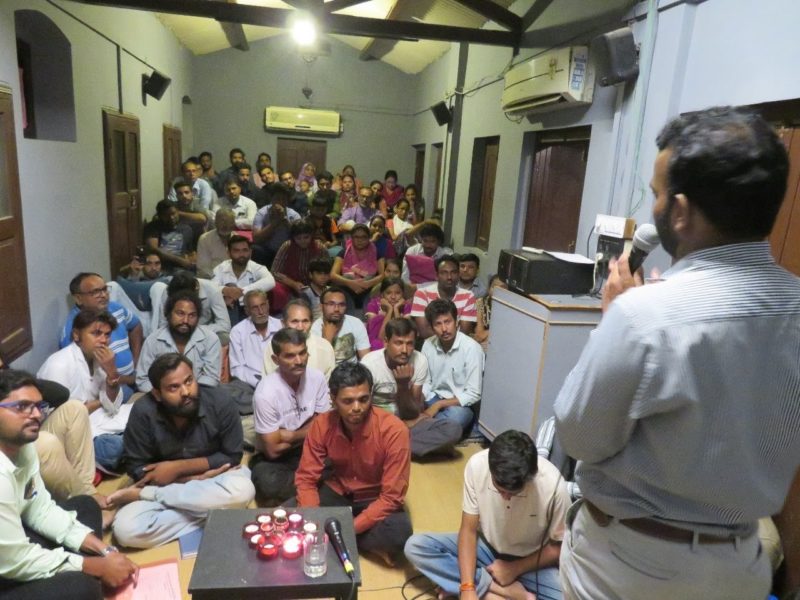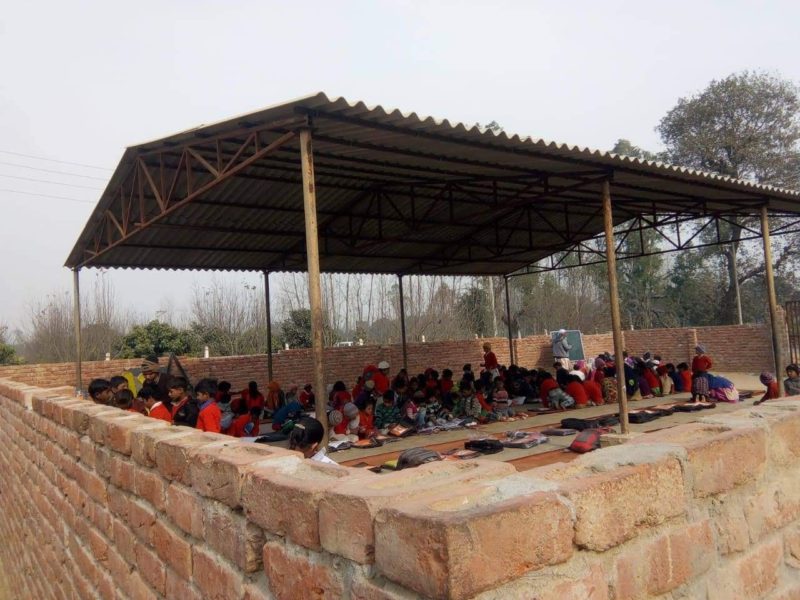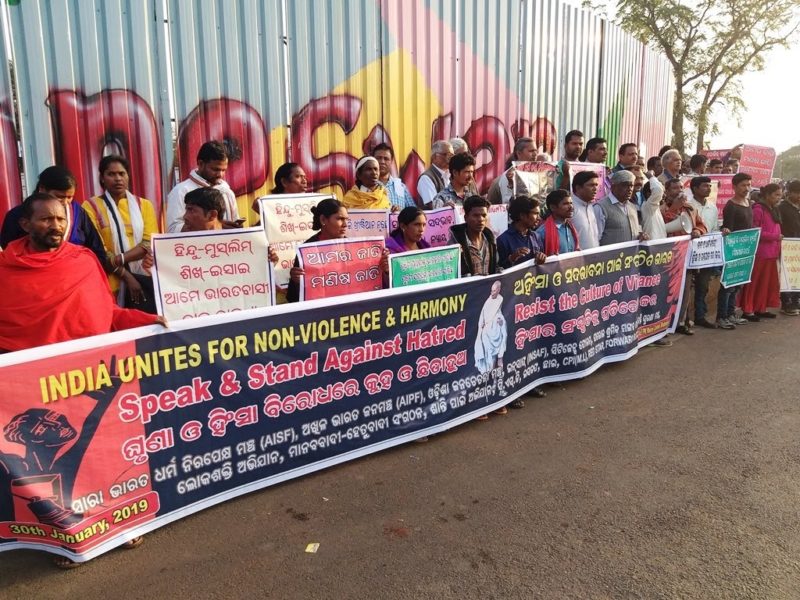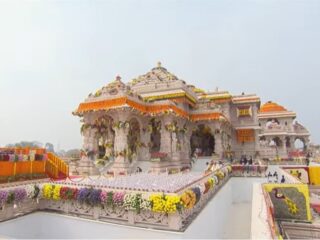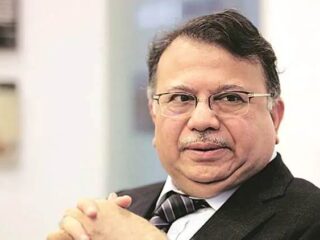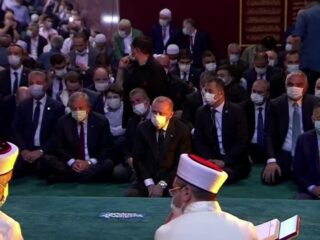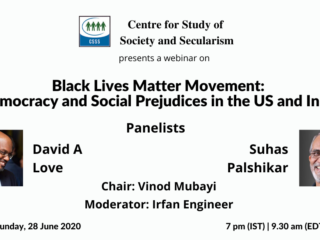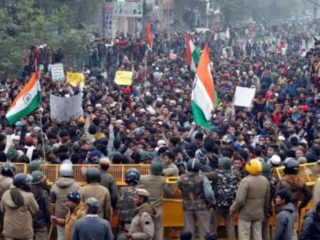Executive Summary
Rahul from the Bhagalpur peace centre along with a team of 10-12 peace workers was successful in averting a communal riot in the month of March. Peace centre in Ahmedabad became the catalysts for change through which the Dalits and Muslims started social interactions after the communal riots of 2002 which had created a rift between both the communities. Similar work along with cultural interventions to strengthen democratic culture and peace is being carried out by three more peace centres at Shamli, Kandhamal and Raipur. These peace centres are supported by CSSS for the last 5 years, however, they are facing a financial crisis and therefore we would like to appeal to you for your support. We are looking at raising INR one lakh each month and your contribution of INR 5000 or any amount possible each month will be useful in continuing their activities.
Background
- Bhagalpur (Bihar) was saved from the brink of a communal riot on March 17, 2018
Bhagalpur, a town in Bihar, was on the brink of a communal riot in 2018 during the celebration of Hindu New Year on 17th March. A rally organized by some Hindutva outfit played provocative songs and passed through the Muslim neighbourhood which led to stone pelting and damage to some shops. Rahul, a peace worker from the Bhagalpur peace centre, immediately brought a group of 10-12 individuals from both, the Hindu and Muslim community. They together went door to door and held mohalla meetings to appeal for peace to people when communal tensions were running high and did not let the charged atmosphere spiral into a communal riot. The group of peace workers intervened and worked hard to diffuse the tensions till calm was established, brought common citizens on the road to carry out vigil to prevent a communal riot. The police commissioner met and sought help from the peace centre in appealing to bring calm. The women from the peace centre sensitized the civil society organizations and common citizens alike to act in this volatile situation. Due to these painstaking efforts and acts of courage in the times of mortal risk and violence, a major riot was successfully averted. Paridhi, the peace centre at Bhagalpur, has been working to promote communal harmony and peace since many years through sustained dialogues and exchanges between different communities.
Bhagalpur peace centre organised a peace meeting after the communal clashes on Hindu New Year last year
- Bringing Communities together in Gomtipur, Ahmedabad
The communal riots in Kherada, 2018 not only displaced people of Kherada but also distanced the two major resident communities, the Dalits and the Muslims. The two communities had participated in the communal riots of 2002 in Ahmedabad against each other and had stopped visiting each other’s neighbourhoods ceasing any interactions between them. However, in the year 2017, the two communities, the Dalits and the Muslims, came together to celebrate Ambedkar Jayanti. Muslims distributed refreshments to the participants in Dalit rally, especially when it passed through the areas where Muslims resided. This was the result of sustained work of the National Peace Group (NPG), a Peace Centre working in Ahmedabad.
NPG works against communalism bringing out fact finding reports and extending support to the internally displaced persons. However, the most significant activity of the Centre is the inter-cultural dialogue that it is trying to build through street plays. Dialogue that aims not only towards generating awareness on social issues but also in bringing communities together. Vaadu Apjo Baa, is a street play written by Hozefa Ujjaini, a respected activist and also mentor to the Ahmedabad peace centre. The play highlights the heart wrenching condition of manual scavengers who are forced to work in unhygienic conditions under the oppressive caste system for pittance. The Peace Centre has also developed street plays on the issues of child marriage, mob lynching and government budget. These plays aim towards sensitizing people and making them reflect on social hierarchies and injustices. The Centre also collaborates with other citizens and civil society organizations to organize heritage walks (guided visit to places of historical and cultural importance), recitation of resistance poetry and other cultural activities in Ahmedabad to spread awareness about the diversity and composite culture of the society.
Poetry recitation at Shaam-e-Aman, an evening of poetry related to peace, love and harmony by the Ahmedabad Peace centre
- The Sanjha Manch stopped a communal conflict
The Peace Centre in Udaipur, Sanjha Manch, has two centres. One operates in the Udaipur city and the other in the rural area of Udaipur, Kherwada. Its rural reach gave it space to intervene in potential communal conflict that happened due to marriage of a Hindu upper caste girl with a Muslim boy. Some divisive forces instigated the concerned families and the incident was about to turn into a communal conflict when Sanjha Manch intervened. It negotiated with the two communities, convincing the elders of the villager that the couple would not visit the village and that the incident should not turn into a communal conflict.
Along with Bhagalpur (Bihar), Ahmedabad (Gujarat) and Udaipur (Rajasthan), the other peace centres at Shamli (Uttar Pradesh), Raipur (Chhattisgarh) and Kandhamal (Odisha) also work with different marginalized communities – Dalits, Muslims, Christians and Tribals to initiate and nurture similar inter community dialogues and exchanges by conducting cultural as well as educational programs.
With the efforts of our Peace centre in Shamli, the children of internally displaced communities finally got a space for school which will soon have all the amenities
What are Peace centres?
Above are the examples of some of the activities and achievements of the peace centres mentored by the Centre for Study of Society and Secularism (CSSS). Peace centres are network of individuals who work for peace and highlight diversity through volunteers. CSSS supports such peace networks by mentoring them and building their capacities. All these places have in the past experienced the horrors of violence along religious lines where innocent lives were lost. These peace centres work as a bridge to bring together Hindus, Muslims, Dalits, Christians, Adivasis and women on one platform to highlight cultural diversity and composite culture that binds society together and makes our social fabric so vibrant. The peace centres appreciate different cultures and reject any kind of cultural superiority.
Towards this end, the peace centres work with educational institutions, civil society organizations and communities to undertake the following salient activities:
- Creating an inter-cultural inter-community dialogue to strengthen communal harmony appreciating cultural diversity of India
- Celebrating national icons like Gandhi, Ambedkar, Phule, Bhagat Singh who contributed to shape an inclusive India
- Organizing cultural programmes to revisit the wisdom and message of love and compassion drawn from the cultural resources of humanity like Kabir, Ravidas, Buleshah Narsi Mehta, who till date hold an appeal amongst the hearts and ethos of common citizens and shape democratic and inclusive values.
- Fact finding reports and documentation in case of communal conflicts
Peace centre in Kandhamal joined the all India campaign on non-violence and harmony on 30th January
In 2018, collectively the peace centres could reach out to over 40,000 people with this message and working relentlessly to strengthen the narrative of diversity and composite culture. It has been a painstaking journey of 4 years where 30-40 committed peace volunteers at each peace centre are conducting these activities against many odds.
Unfortunately, the financial resources to support peace centres have dried up and CSSS is finding it difficult to support the meaningful work of these peace centres. After 5 years of raising resources and putting their best of everything with conviction in challenging circumstances, the commitment of the fellows and volunteers needs support. Your support will definitely help each of these peace centres to continue building a society which appreciates peace and harmony.
What can you do to support the peace centres?
Minimum resources required for the functioning of Peace centres is INR 30,000 for each Peace Centre each month. This means an expenditure of Rs. 1,80,000 (Rs. 30,000 X 6) every month for the Peace centres. The CSSS has been able to raise Rs. 15,000 per month per centre for the year 2019. NEED IS FOR AN ADDITIONAL RS. 15,000 PER PEACE CENTRE PER MONTH. There is no other source for generating money but for your good will and contribution.
You can adopt a Peace Centre and we welcome you to visit them too. A few of you can come together to support a specific Peace Centre. You can make a donation of INR 5000 each month to support the works of the Peace centres. Even a smaller amount is welcome. We request you to donate whatever amount is possible to ensure that the activities of the Peace Centres continue in future.
These resources will help in paying venue rentals where such programmes are conducted, inviting prominent scholars or citizens to speak or deliver lectures, for promotion material etc. We are doing out bit and counting on contributions from individuals who can help us to strengthen the activities of the peace centres for a peaceful society.
The peace centres are trying their best to maintain peace and harmony in such times when our society is strained with hatred and violence. Your contribution will go a long way to uphold the democratic culture and peace of our diverse country!
How to donate?
Kindly write a cheque in favour of ‘Centre for Study of Society and Secularism’. And send to CSSS office (602 & 603, New Silver Star, Prabhat Colony Road, Santacruz (E), Mumbai:- 400 055). CSSS will be happy to provide an 80 G certificate if anyone should want it. For Online Transfers/ECS –
Title of the Account Holder: Centre for Study of Society and Secularism
Name of bank: Dena Bank, Santacruz (E) Branch.
Saving Account No. 010810008262
Bank Code (MICR): 400018033
Bank IFSC Code: BKDN0460108
Bank RTGS Code: BKDN0460108
Bank Swift Code: BKDNINBBDDR
Centre for Study of Society and Secularism (CSSS) is a Mumbai based non-profit organisation that has been working for over two decades towards promoting peace and communal harmony. CSSS works to spread awareness about composite culture and monitors communal violence and hatred. The organization is registered under the Bombay Trust Act,1950.

